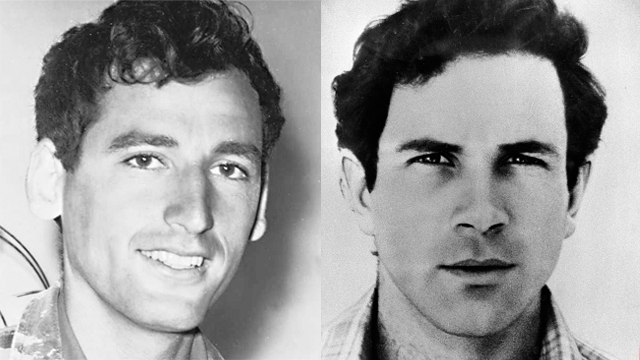
40 years after Operation Entebbe, the fight for glory still rages
Op-ed: Over the past 40 years, the fight for credit and glory between Sayeret Matkal's deputy commander Muki Betzer and the family of commander Yoni Netanyahu kept resurfacing. Now, with a new book bringing together testimonies from the commandos who fought alongside the two, most of the points of contention could be resolved.
"Another issue that came up in the unofficial debriefing on the plane—and in very high volume—was the fact Muki Betzer stopped in the middle of the charge into the terminal, which put Amnon and myself (and of course the hostages as well) in great danger. He was asked why he stopped and answered: 'My Kalashnikov was jammed.' His answer seemed very strange... after we landed in Israel, and during the years that followed, his explanation changed and became 'empty magazine'... there didn't appear to be any target that justified emptying out his magazine... It's unclear why an officer as experienced as Muki did not think to keep enough bullets in his magazine for the critical stage of storming (the terminal). In short, the explanations he gave to why he stopped did not convince us and the issue remained unresolved."
This excerpt, published here for the first time, was written by Amir Ofer, the first of the soldiers to storm into the terminal in "Operation Thunderbolt"—later known as “Operation Yonatan” after Sayeret Matkal commander Yonatan "Yoni" Netanyahu who was killed in the operation. The excerpt appears, along with many others, in the pages of "Operation Yonatan in the First Person," a new book, excerpts of which were exclusively published on Ynetnews last month. The book, which for the first time includes testimonies from commandos of the elite Special Forces unit Sayeret Matkal who stormed the terminal, has recently reignited the bloody war of egos among them.
Throughout the past 40 years, every now and again, the fight for glory and credit over the most famous rescue operation in history has resurfaced. In the political echelons, then-Prime Minister Yitzhak Rabin and his then-Defense Minister Shimon Peres sent representatives on their behalf to the set of Menahem Golan’s feature film about the operation to fight for the credit. Meanwhile, soldiers from the Golani and the Paratroopers brigades felt bitter about the fact this operation was being portrayed as a victory solely of Sayeret Matkal.
But the most heated fight for credit and glory was between the deputy commander of Sayeret Matkal, Muki Betzer, and the Netanyahu family—particularly Dr. Iddo Netanyahu, who dedicated a large part of his life to investigating the operation and writing about it. Journalists who sought to hurt brother Benjamin using Yoni's memory delighted in the argument.
The two sides quarreled over everything, but these are the main points of contention:
- Who planned the operation? Did Yoni, upon returning from the Sinai Peninsula on Thursday, find an operation in its final stages of planning (Betzer's version) or did he have to plan almost the entire operation (the Netanyahu family's version)?
- Should Yoni have opened fire at the Ugandan guards the commandos encountered on the runway en route to the terminal (the Netanyahu version) or should he have heeded Betzer's advice, as the deputy commander claims, and not open fire so as to not risk losing the element of surprise?
- Did Yoni account for the fire that would likely come from the control tower (the Netanyahu version) or did he err in the deployment of the forces and was eventually shot himself from the control tower (Betzer's version)?
- Why did Betzer stop in the midst of storming the terminal, causing the entire team of commandos to stop behind him (the Netanyahu version)? Betzer’s answer is that he merely had to change magazines and didn't cause any delay.
In the absence of a record of the raid or an official operational debriefing, there is no way to prove—on a legal level—what actually happened. On the other hand, the book that was recently distributed in a private ceremony—attended by the Sayeret Matkal commandos, the pilots, Yoni Netanyahu's girlfriend, his brothers Benjamin and Iddo and representatives of the Paratroopers and Golani brigades (that also participated in the operation, fighting in other areas of the Entebbe airport)—provides a definitive answer to these questions, as much as 40-year-old testimonies could be relied upon.
It turns out that the version of events presented by a great majority of Sayeret Matkal’s soldiers and officers almost completely matches (apart from minor differences) the Netanyahu family’s version. According to the testimonies, Yoni (alongside Betzer and other officers) is the one who planned the operation; Yoni was right in opening fire at the Ugandan soldiers, and it's unclear whether the element of surprise was lost; it's also unclear where exactly the bullet that fatally wounded Yoni was fired from; and the control tower is made of reinforced concrete so there was no way to neutralize it anyway.
And, as previously mentioned, the bitter argument between Betzer and the other commandos remains over the reasons why he stopped in the midst of the charge into the terminal.
One could argue about the way Prime Minister Benjamin Netanyahu chose to portray the operation during the ceremonies to commemorate 40 years since the raid, but historically, factually, and to the point, it needs to be said that the Sayeret Matkal commandos, even those who strongly oppose Benjamin Netanyahu and his ways, praise and exalt Yoni's actions, before and during the operation, until he was killed.












